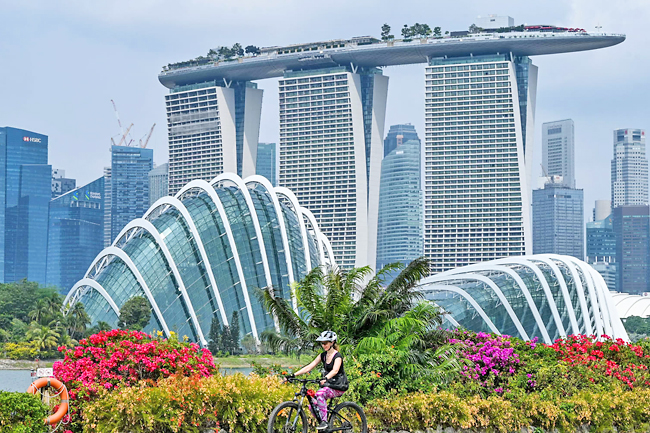SINGAPORE (AFP) – Singapore’s economy grew weaker than expected last year, the government said yesterday, warning that geopolitical risks will continue to pose headwinds this year.
The city-state’s economic performance is often seen as a barometer of the global environment due to its dependence on international trade.
Last year’s growth rate of 1.1% announced by the Ministry of Trade fell short of the 1.2% announced by Prime Minister Lee Hsien Loong on New Year’s Eve, based on preliminary estimates.
This was the third consecutive year of growth since the 2020 recession caused by the coronavirus pandemic, but slower than the 3.8% in 2022 and 8.9% in 2021.
According to the ministry, this year’s growth forecast remains unchanged at 1.0-3.0%.
Last year’s weak performance was due to weak global demand for Singapore’s exports.

The main manufacturing sector contracted by 4.3%, reversing the previous year’s 2.7% growth.
“Singapore’s external demand outlook for 2024 remains largely unchanged,” the Ministry of Trade said in a statement.
Economic growth in major export markets, including the United States and the euro area, is expected to slow in the first half of the year, primarily due to continued tight financial conditions, and then gradually taper off in line with expected monetary policy easing as inflationary pressures recede. It is expected that the situation will recover,” he added.
China’s economy is “expected to remain lackluster in the first half of this year due to a weak real estate market and slowing growth in domestic consumption and exports,” the statement said.
The report warned that downside risks to the global economy “remain significant” and that global supply chains could be disrupted, citing the escalation of the Israel-Hamas conflict and the war in Ukraine.
The ministry said the delayed impact of bad weather and high interest rates could also weaken the momentum of the global economic recovery.
